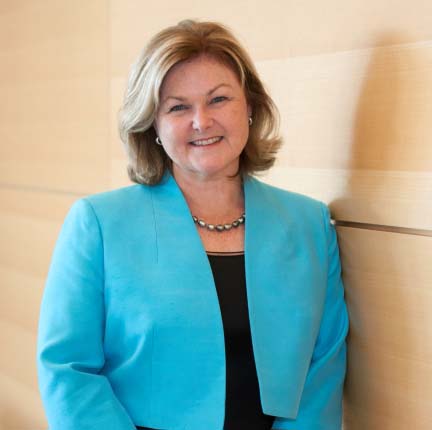Policy Support to Increase Women Entrepreneurs’ Access to Finance

Gender Gap in Access to Financial Capital
To launch and grow a small business, entrepreneurs need financial capital. Globally, gender gaps in access to capital impede many women-owned firms. As governments seek to achieve the United Nations Sustainable Development Goals, some have introduced policies and programs to increase women entrepreneurs’ access to capital. In 2018, for example, the Government of Canada allocated $20 million to the Women Entrepreneurship Fund. In 2019, the Canadian government launched the Women Entrepreneurs Strategy with an additional $10 million in women-focused financing.
“Despite an increase in the number of government women-focused policies and programs, we know little about how such policies translate into practice,” explains Barbara Orser, Full Professor at the University of Ottawa’s Telfer School of Management. “Small business and innovation programs are also rarely examined from a gender-inclusive perspective,” she adds.
To understand the links between government policies and practices, Professor Orser, Susan Coleman of the University of Hartford, Collette Henry of Dundalk University, and their co-authors reviewed policies and practices designed to increase women entrepreneurs’ access to capital in Canada, Germany, Ireland, Norway and the United States. The authors shared their findings in the article “Policy Support for Women Entrepreneurs’ Access to Financial Capital: Evidence from Canada, Germany, Ireland, Norway, and the United States.” The article was published in the Journal of Small Business Management.
Overview of the study findings
- Most women-focused policies have only been instituted within the past few years,
- These policies advance recommendations focusing on educating and training women entrepreneurs.
- Few women-focused policies unfortunately reflect the outcomes of gender equality, equity, or women’s economic empowerment.
- There remain disconnects between women’s entrepreneurship policies and funding allocated to small business programming.
- Across the countries studied, policies without programs and similarly, programs without underpinning policies, face a number of risks, such as changes in government and the elimination of funding.
“Our study shows that most policies to increase women’s access to capital are at an early stage of evolution, so is policy research focusing on women’s enterprise. If we don’t understand the shortcomings and impacts of policy, we miss opportunities to effectively direct investments to support women’s enterprise growth. Lack of evidence also increases the likelihood of political opportunism at the expense of increasing access to financial capital for diverse women entrepreneurs.”
Professor Barbara Orser
Learn more about this collaborative study:
Coleman, C., Henry, C., Orser, B.J., Foss, L. and Welter, F. 2018. “Policy support for women entrepreneurs’ access to financial capital: A comparative analysis of Canada, Germany, Ireland, Norway and the U.S.” Journal of Small Business Management.
About the Global Women's Entrepreneurship Policy Research Group
The study is part of the Global Women’s Entrepreneurship Policy Research Group, a collaborative international network of senior researchers from over 30 countries who are examining women’s enterprise policies and programs. Launched in 2014, the research group seeks to identify evidence-based policies or practices that support women’s entrepreneurial activities. By exchanging policy knowledge and sharing policy data for collective publications, the project adds value to extant policy scholarship and informs policy development.
From Research to Policy Impact
Professor Orser is a member of policy groups that advise the G20, an international forum for governments and central bank governors from 19 countries and the European Union. On March 11, 2020, Professor Orser shared her research findings with federal minister The Honourable Anita Anand in briefing sessions organized by Startup Canada.

Barbara Orser is a Full Professor and the Deloitte Professor in the Management of Growth Enterprises at the Telfer School of Management. Her research, teaching and advocacy focus on entrepreneurship and women’s economic empowerment. Learn more about her work.